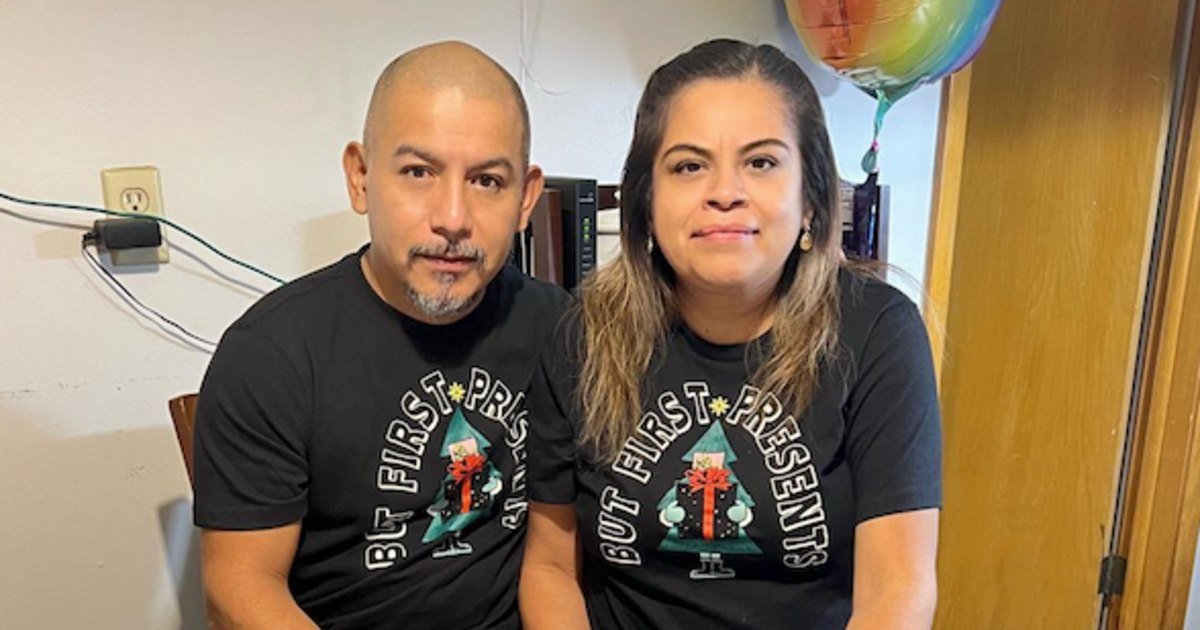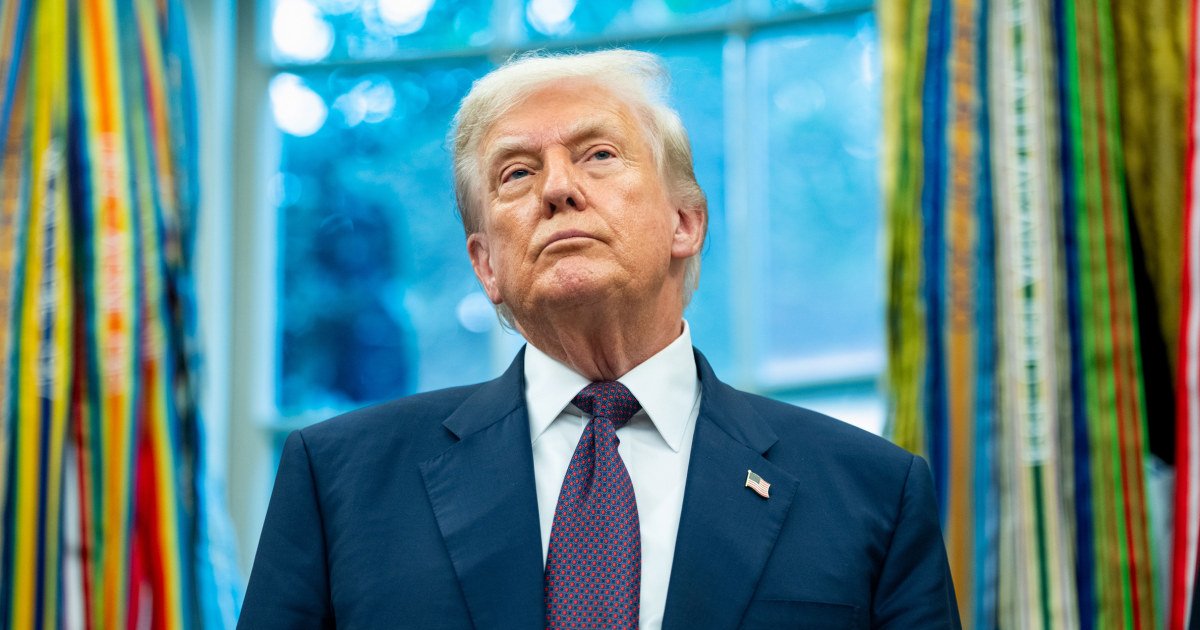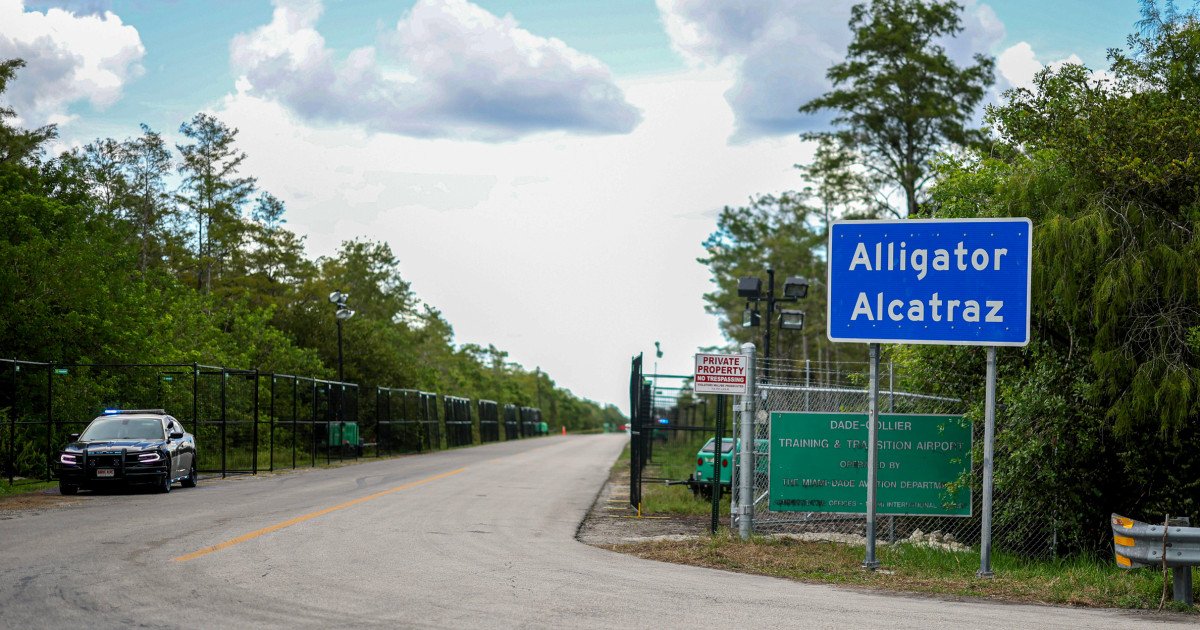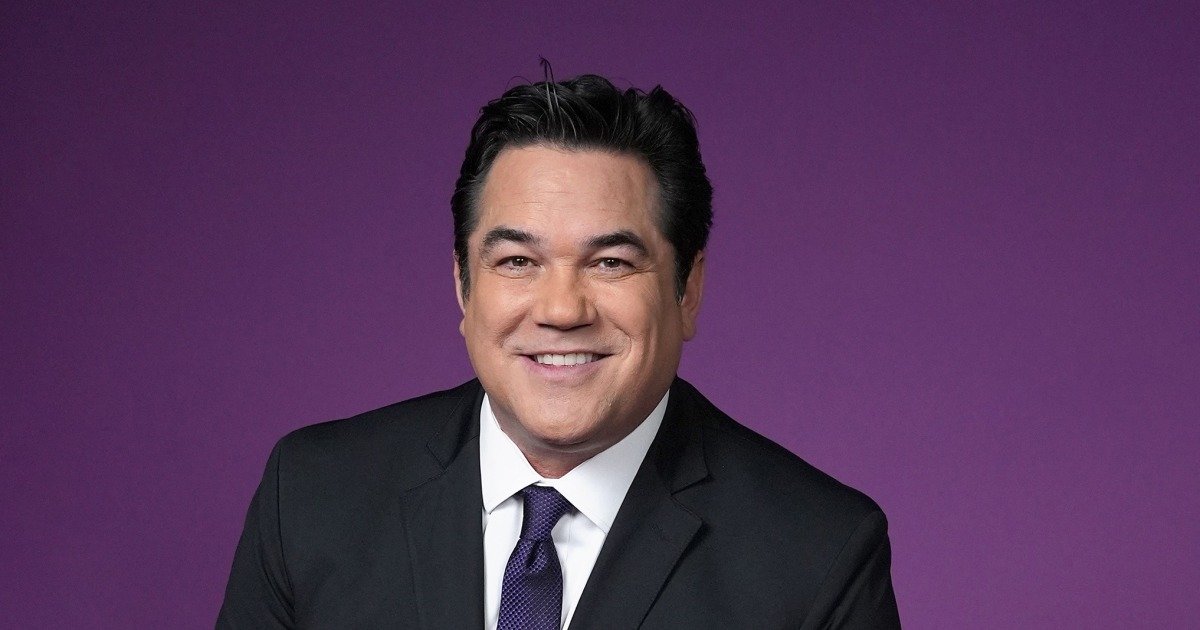The eyes of Domingo Mendoza Méndez are filled with tears when he says he has not seen his family since July 10, when he went to an appointment with the immigration and customs control of the United States (ICE) and was arrested.
“I am in the process of a visa and they stopped me, but I don’t know why they are stopping me. I am following all their rules,” said Mendoza Méndez, a 45 -year -old Mexican immigrant, in a video call with Telemundo news of the correctional ease of Freeee County in Minnesota.
In 2013, Mendoza Méndez, who had crossed the border 13 years before, was the victim of a violent robbery in Minnesota, which was registered and investigated by the Police. The type of assault that suffered is included in the list of crimes of citizenship and immigration services of the United States (USCIS) that qualify for a visa U, a measure designed for victims of criminal acts in the United States that agree to help the authorities investigate the crime.
However, as part of the Mass Deportation Campaign of the Trump Administration, some immigrants who have requested and are in the process of waiting for an U visa have been arrested.
“I feel sad. I am trying to gather my strength, but there are many things that happen here. Many of us are violated our rights,” said Father Married to three children, and added that he has been in the process of obtaining a visa since 2021.
Magdalena Metelska, the immigration lawyer who manages the case of Mendoza Méndez, said that other administrations did not take coercive measures against victims who request visas U, but that has changed with the second Trump administration.
Now, if someone has a pending visa and has even been given a notification of work permit, such as Mendoza Méndez, “it really doesn’t matter because these people are also being arrested and detained,” he said.
In April, José Madrid-Leiva, a Guatemalan immigrant who was waiting for an U visa, was arrested in Kansas City. That same month, the Guatemalan immigrant Gerber Mazariegos Dávila, who requested a U visa, was arrested by ice agents in Atlanta. In June, Esvin Juárez and Rosmeri Miranda-López, a Guatemalan couple with four children whose visa application had been approved was deported to their homeland.
A benefit and a tool for the application of the law, with a large portfolio
The U Visa was created by Congress in 2000 through the victims of the Traffic and Violence Protection Law (TVPA) and is reserved for victims of certain crimes that “have suffered physical or mental damage” and that cooperate with the police or government officials “in the investigation or prosecution of the criminal activity,” according to USCIS.
“Visa U is a humanitarian benefit, but it is also a tool for the application of the law,” said Hannah Shapiro, supervisor lawyer of the Legal Aid Society, which provides legal help to low -income families and individuals. “It requires that the individual cooperate in an investigation or prosecution related to visa qualifying crimes, which can be recent or occurred several years ago.”
He added that the visa was designed to make communities safer encouraging undocumented survivors of domestic abuse and other crimes to contact the police and cooperate in investigations, which helps make the abusers responsible.
The benefits of the U visa include the ability to live and work in the US and the opportunity to request a green card in the future. However, as with other visas for victims of abuse and crime, such as the special program of minors of immigrants, the United States government only grants 10,000 visas or per year, which has created a considerable portfolio of orders for applicants.
There are more than 300,000 people waiting, in addition to qualifying family members, Shapiro explained, and the process can take up to 15 or 20 years.
According to USCIS numbers, the Government received 266,293 main visa applications of fiscal year 2017 until the second quarter of fiscal year 2025.
“This means that if all Visa U requests were stopped today, it would take more than 20 years to resolve the pending cases. Since fiscal year 2009, USCIS has seen a 2013 increase in pending cases,” said USCIS in a statement sent to Telemundo News.
Since June 2021, USCIS has been giving “determinations in good faith”, official documents that validate the legitimacy of the Visa U and protects the applicants from deportation while giving them labor authorization.
Recent changes, less protections
Immigration experts and lawyers say that the Trump administration now states that “good -faith determinations” do not protect people from deportation, which leads to arrests from U visa applicants.
“I always carried in my wallet the letter of good faith that Ice had approved for me, which states that I have the right to be in the United States without fear of deportation. But the agents told me that they no longer respected that. And they took me,” said Mendoza Méndez.
Matthew J. Tragasser, head of the USCIS Public Affairs Office, told Telemundo news that “a good faith determination in a pending application for the non -immigrant state or does not protect a foreign national from the application of immigration.”
Tragasser also stated that “the Visas U program is being exploited by foreign scams and criminals, its corrupt lawyers and the law agents”, although it did not provide figures or specific cases.
Last month, USCIS announced that five Louisiana men, including four active and retired law officers, had been accused of bribe robberies could request visas U.
A change in victims’ protections
Although the fundamental structure of the Visa U program remains intact (since it was created by Congress, it cannot be unilaterally eliminated), several experts and applicants say that its practical implementation has become significantly more difficult.
“Shortly after Trump returned to power, they repealed a memorandum that considered that the victim’s state is a discretionary factor that, except in the attenuating or more serious circumstances, should not be a priority for elimination. This is true if his case was pending and had not been approved,” Shapiro said.
The lawyer refers to Memorandum 11005.4, which changed the agency’s approach to the application of immigration related to U visa applicants. Among other things, this new directive eliminates the proactive identification of the victims, so that ICE officers are no longer obliged to look for clues or evidence that suggests that a foreign national is a victim of a crime when making application decisions.
“With the new National Security Department, these cases are being reopened. Therefore, the people who were helping the police, who had suffered some kind of crime, or were victims of a very serious crime are now in deportation procedures,” said Immigration Lawyer Benjamín Osorio.
One of those cases is that of Fredy Hernández Cedillos, a Salvadoran immigrant who has lived in the United States since 2009. He was injured during a violent robbery in Virginia in 2010 and has been waiting for a U visa since 2020.
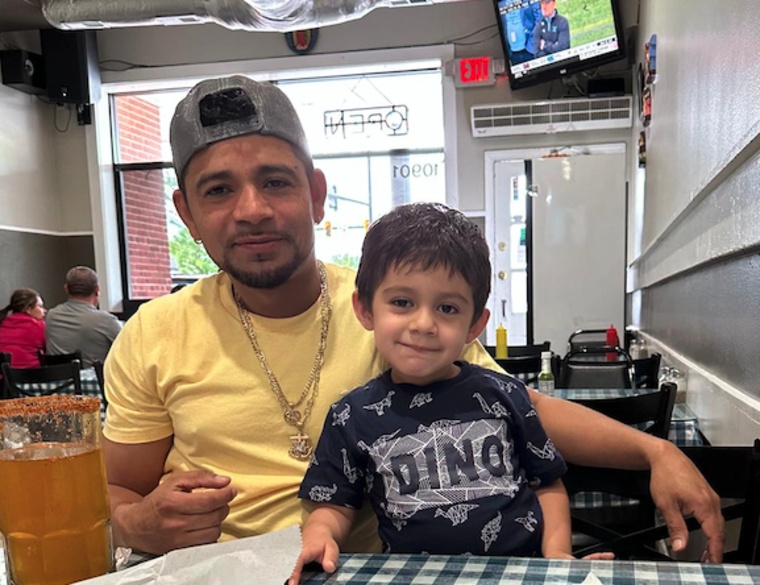
“My lawyer received a letter from DHS saying that they will reopen our case, although we have already gone to court. Therefore, our fear is that we cannot return to our country because the gangs persecute us. And we do not know if we will have to leave our children,” said Cedillos.
The US law allows migrants to request this visa to continue the visa process in the countries to which they were deported. However, lawyers as Osorio warn about the difficulties involved in this process.
“Yes, they can continue their procedures. But the problem is that if the waiting list lasts more than 10 years, people have to spend that time in the country to which they were deported, they are often in danger there. In addition, if they have American children, they will suffer without their parents, because deportation affects the whole family,” Osorio said.
‘Darm for these delays’
The prosecution of these cases was news in January, when a Michigan court ruled that a group of survivors of crimes requesting visas of U could advance with a lawsuit against the National Security Department for unjustifiable delays to receive initial determinations in good faith, which, among other things, has prevented them from accessing work permits.
“We have several clients who have waited almost six years without updates or news, not even an initial recognition of the legitimacy of their case. The court ruled that our clients have been harmed by these delays,” said Meredith Luneack, lawyer for the plaintiffs, in a statement. This case is still being reviewed by the United States District Court for Eastern District of Michigan.
The Trump administration has demanded a drastic increase in immigrant arrests and deportations, with a daily fee of 3,000 arrests. Shapiro, along with other experts, says that this pressure has resulted in hundreds of people while attending their appearances in the immigration court.
“You want to do things well and work in this country, but what I see is that the government wants to eliminate as many people as possible. Fear goes to court and, once we are there, they will not let us out,” said Cedillos.
Mendoza Méndez remains arrested while fighting in court to remain in the United States in a broken voice, said he has not lost hope of returning to his family in Minnesota. “I still have faith and I know we can overcome all this,” he said.
An earlier version of this article was first published in Telemundo News.





